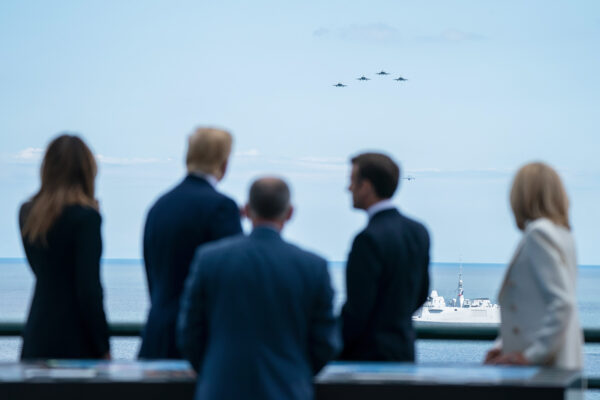
The outbreak of coronavirus disease in the United States has, if little else, given us an encapsulation of Trumpism.
As Patrick Chovanec of Columbia University puts it on Twitter:
According to the president, he has absolute power but absolutely no responsibility.
On Monday, Donald Trump falsely claimed he, not governors, have the power to impose and lift restrictions to contain the spread of the virus:
When somebody’s the president of the United States, the authority is total, and that’s the way it’s got to be.
Yet when he was asked earlier this month why he hadn’t issued a nationwide stay-at-home order, Trump did remember, “We have a thing called the Constitution,” and said, “I want the governors to be running things.”
Which was accurate, but also an abdication of duty. Chancellor Angela Merkel and Prime Minister Pedro Sánchez regularly consult with the leaders of German and Spanish states to coordinate the closing and reopening of businesses and schools, even though that is not strictly their responsibility. Trump could have done the same.
Now some neighboring states opposite policies in place and they are bidding against each other, as well as the Federal Emergency Management Agency, for medical devices and gear. Trump could have federalized the procurement of medical equipment, but didn’t. He could have distributed medical equipment from the Strategic National Stockpile to the states that need it most, but didn’t.
He has found time to criticize Democratic governors, including Gretchen Whitmer of Michigan and Andrew Cuomo of New York, from their handling of the crisis.
The president’s attitude is best summed up by the answer he gave in March, when a reporter asked him about the shortage of testing kits in the United States: “I don’t take responsibility at all.”
Trump’s failures
Trump claims total authority, but what has he done with it?
- In 2018, Trump disbanded the pandemic team his predecessor, Barack Obama, had brought into the National Security Council. Its playbook was ignored this year.
- In 2019, Trump ended a $200 million pandemic early-warning program that trained scientists in China and other countries to detect and respond to such threats.
- In January, Trump was warned by intelligence reports that coronavirus disease could become a pandemic, but did nothing.
- In March, Trump announced various public-private partnerships, including drive-through tests at CVS, Target and Walmart and a screening website developed by Google. None of this has happened.
- Guidance from the Treasury on how to lend stimulus money to small businesses wasn’t provided to banks until the night before the program went into effect.
- The Department of Homeland Security is led by an acting secretary and acting deputy secretary. Of all 749 key positions in the federal government that require Senate confirmation, Trump hasn’t even nominated, much less sworn in, 150.
- Far from leading a global response to the pandemic, the United States couldn’t even agree a joint statement with its closest allies in the G7, because it insisted on referring to COVID-19 as the “Wuhan virus”.
Blame someone else
But none of this is Trump’s fault.
When something goes right, Trump is the first to claim credit.
In daily news conferences, he maintains that he and his administration are being praised for their handling of the crisis (by whom?), but he seldom thanks local and state governments, doctors, nurses and other emergency responders and caregivers, who are on the frontlines.
Congress passed a $2 trillion stimulus to cushion the projected economic impact of the pandemic, but Trump insisted that his name be printed on the cheques, something no president has done before.
When something goes wrong, the buck stops anywhere but in the Oval Office.
- Trump has blamed Obama for the shortage in testing kits.
- He has blamed state governments for shortages in medical equipment.
- He has accused the media of undercovering the disease, which supposedly allowed it to spread, after earlier accusing the same media of exaggerating the outbreak to hurt him politically.
- He has, of course, blamed China, since that’s where the outbreak began.
- He has accused New York hospitals of using too many face masks.
- He has blamed “a group of people” in his administration for disbanding the pandemic team in the National Security Council.
- He has accused the World Health Organization of “severely mismanaging and covering up” the pandemic and held up the United States’ $400 million contribution to the UN body, which has a $4.8 billion budget. (Democrats in Congress argue the president cannot unilaterally cut funding.)
- When Captain Brett Crozier sounded the alarm about an outbreak of coronavirus disease on board the USS Theodore Roosevelt, he was relieved of his command. At least 589 of the aircraft carrier’s 4,800 officers and crew have contracted the disease. One has died.
The Washington Post reports that shielding the president from accountability is the priority of his advisors:
[T]hey are trying to mobilize business executives, economists and other prominent figures to buy into the eventual White House plan [to reopen the economy], so that if it does not work, the blame can be shared broadly.
What a profile in courage.
